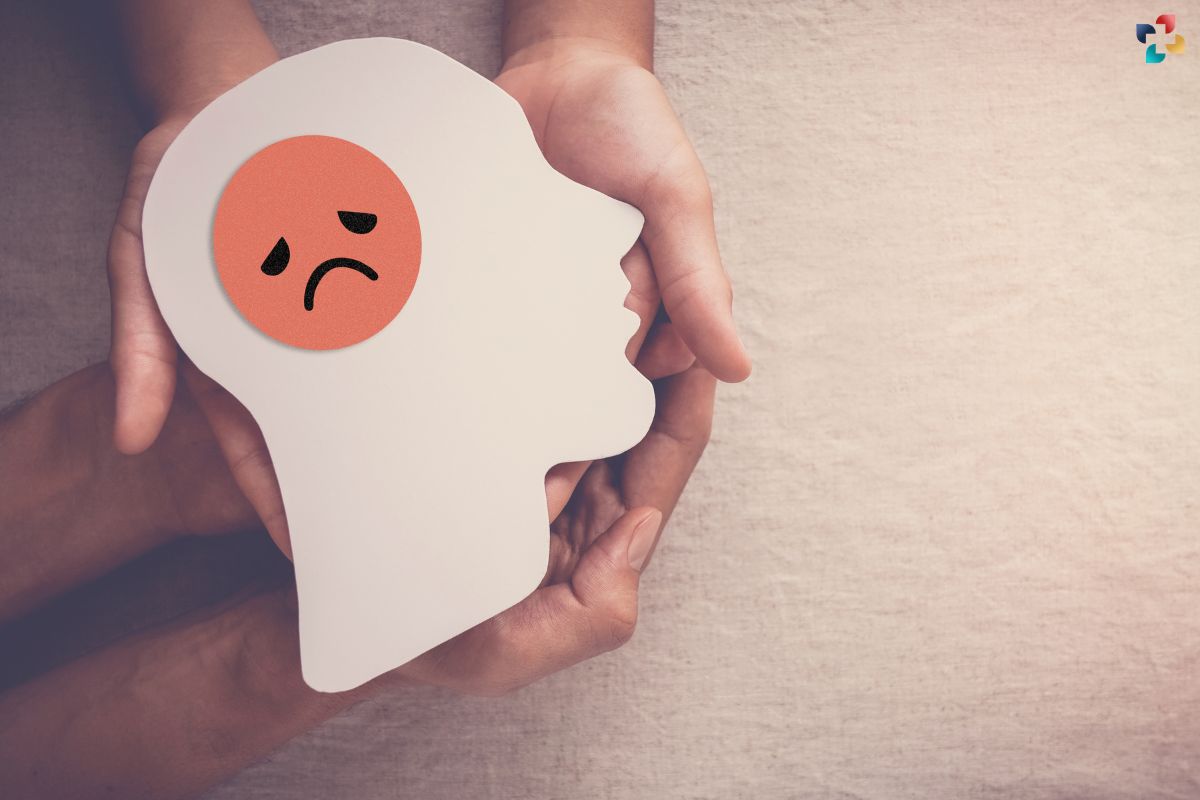Female hormone imbalance is a common issue that affects many women at different stages of their lives. These imbalances can have a significant impact on a woman’s overall health, well-being, and quality of life. Understanding the intricacies of female hormone imbalance, its symptoms, causes, and potential solutions is essential for managing this condition effectively. This comprehensive article will delve into these aspects to provide a thorough understanding of female hormone imbalance.
What is Female Hormone Imbalance?
Hormone imbalance in females occurs when there is an excess or deficiency of one or more hormones in a woman’s body. Hormones are chemical messengers produced by endocrine glands, such as the ovaries, thyroid, and adrenal glands, that regulate various bodily functions, including metabolism, growth, mood, and reproductive processes. When these hormones are not in balance, it can lead to a variety of symptoms and health issues.
Common Symptoms of Female Hormone Imbalance
The symptoms of female hormone imbalance can vary widely depending on which hormones are affected and the severity of the imbalance. Some common symptoms include:
- Irregular Periods: One of the most common signs of hormone imbalance is irregular menstrual cycles. This can include missed periods, heavy bleeding, or periods that occur too frequently.
- Mood Swings and Depression: Hormones like estrogen and progesterone significantly influence mood regulation. An imbalance can lead to mood swings, irritability, anxiety, and even depression.
- Weight Gain: Hormonal imbalances can affect metabolism, leading to unexplained weight gain or difficulty losing weight, particularly around the abdomen.
- Fatigue: Chronic fatigue and low energy levels can be a result of imbalances in thyroid hormones, cortisol, or insulin.
- Hot Flashes and Night Sweats: Common during menopause, these symptoms can also indicate a broader hormonal imbalance.
- Acne and Skin Changes: Hormone fluctuations can lead to acne breakouts, dry skin, or other skin issues.
- Hair Loss: Androgen imbalances can lead to thinning hair or excessive hair growth in unwanted areas.
- Sleep Disturbances: Imbalances in melatonin and cortisol can disrupt sleep patterns, leading to insomnia or poor sleep quality.
Causes of Female Hormone Imbalance

Several factors can contribute to female hormone imbalance, including:
- Menopause: The most well-known cause, menopause involves a natural decline in estrogen and progesterone levels, leading to various symptoms.
- Polycystic Ovary Syndrome (PCOS): This common endocrine disorder causes irregular menstrual cycles, high levels of androgens, and cysts on the ovaries.
- Thyroid Disorders: Conditions like hypothyroidism and hyperthyroidism affect the production of thyroid hormones, impacting overall hormonal balance.
- Stress: Chronic stress can lead to elevated cortisol levels, which can disrupt the balance of other hormones.
- Poor Diet and Nutrition: A diet lacking in essential nutrients can impair hormone production and regulation.
- Birth Control Pills: Hormonal contraceptives can affect the natural hormone balance in the body.
- Obesity: Excess body fat can produce estrogen, leading to an imbalance in hormone levels.
- Environmental Toxins: Exposure to endocrine-disrupting chemicals (EDCs) found in plastics, pesticides, and other products can interfere with hormone function.
Diagnosing Female Hormone Imbalance
Diagnosing female hormone imbalance typically involves a combination of a thorough medical history, physical examination, and laboratory tests. Doctors may request blood tests to measure hormone levels, such as estrogen, progesterone, testosterone, thyroid hormones, and cortisol. In some cases, additional tests like ultrasound or MRI may be necessary to evaluate the ovaries or adrenal glands.
Treatment Options for Female Hormone Imbalance
The treatment for female hormone imbalance depends on the underlying cause and the specific hormones involved. Here are some common approaches:

- Lifestyle Changes: Adopting a healthy lifestyle can significantly impact hormone balance. This includes regular exercise, a balanced diet rich in fruits, vegetables, and lean proteins, and stress management techniques like yoga and meditation.
- Hormone Replacement Therapy (HRT): For women experiencing menopause or severe imbalances, HRT can help replenish deficient hormones. This therapy involves taking estrogen, progesterone, or a combination of both.
- Medications: Depending on the condition, doctors may prescribe medications to regulate hormone levels. For example, thyroid hormone replacement for hypothyroidism or metformin for PCOS.
- Herbal Supplements: Certain herbs, like black cohosh, chasteberry, and evening primrose oil, are believed to help balance hormones naturally. However, it’s essential to consult with a healthcare provider before starting any supplements.
- Stress Reduction: Implementing stress-reducing practices such as mindfulness, deep breathing exercises, and adequate sleep can help regulate cortisol levels and improve overall hormone balance.
- Dietary Adjustments: Ensuring adequate intake of essential nutrients, such as omega-3 fatty acids, magnesium, and vitamin D, can support hormone health. Avoiding processed foods and reducing sugar intake is also beneficial.
Hormonal Imbalance
Prevention of Female Hormone Imbalance
Preventing a woman’s hormone imbalance involves maintaining a healthy lifestyle and being proactive about one’s health. Here are some tips to help prevent hormone imbalances:
- Regular Exercise: Engaging in regular physical activity helps regulate hormones and maintain a healthy weight.
- Balanced Diet: Eating a nutrient-rich diet with plenty of fruits, vegetables, whole grains, and lean proteins supports hormone production and balance.
- Stress Management: Incorporating stress-reducing activities, such as yoga, meditation, and hobbies, can help maintain healthy cortisol levels.
- Avoiding Toxins: Minimizing exposure to environmental toxins, such as BPA and phthalates, can protect endocrine health.
- Regular Check-Ups: Regular medical check-ups and screenings can help detect and address hormonal imbalances early.
The Impact of Female Hormone Imbalance on Long-term Health
Feminine hormone imbalance can have far-reaching effects on long-term health if left untreated. Chronic imbalances can increase the risk of various health conditions, including:
- Cardiovascular Disease: Hormone imbalances, particularly involving estrogen, can affect heart health and increase the risk of heart disease.
- Osteoporosis: Low estrogen levels, especially during menopause, can lead to decreased bone density and a higher risk of fractures.
- Diabetes: Insulin resistance, often associated with conditions like PCOS, can increase the risk of developing type 2 diabetes.
- Mental Health Issues: Chronic hormone imbalances can contribute to ongoing mental health issues such as anxiety and depression.
- Reproductive Issues: Untreated hormone imbalances can lead to infertility, irregular menstrual cycles, and other reproductive problems.
Natural Remedies and Holistic Approaches to Female Hormone Imbalance

Many women seek natural remedies and holistic approaches to manage female hormone imbalances. Here are some popular methods:
- Acupuncture: This traditional Chinese medicine technique can help balance hormones and alleviate symptoms like hot flashes and mood swings.
- Essential Oils: Certain essential oils, such as clary sage, lavender, and geranium, are believed to support hormone balance when used in aromatherapy or topical applications.
- Mind-Body Practices: Practices like yoga, tai chi, and meditation can help reduce stress and promote overall hormonal harmony.
- Herbal Medicine: Herbs like ashwagandha, maca root, and holy basil are commonly used to support adrenal health and balance hormones.
When to See a Doctor?
While some degree of hormone fluctuation is normal, it’s important to see a doctor if you experience persistent or severe symptoms of hormone imbalance. Early diagnosis and treatment can help prevent complications and improve quality of life.
Conclusion
Female hormone imbalance is a multifaceted condition that can significantly impact a woman’s health and well-being. Understanding the symptoms, causes, and treatment options is crucial for managing this condition effectively. By adopting a healthy lifestyle, seeking medical advice, and exploring both conventional and holistic treatment options, women can achieve better hormonal balance and overall health. If you suspect a hormone imbalance, it’s important to consult with a healthcare provider to determine the best course of action for your individual needs.

Navigating Fertility Testing: Understanding Options, Benefits, and Considerations
In this comprehensive guide, we explore the various types of Fertility Tests available, their significance in evaluating fertility potential, and considerations for individuals seeking to optimize their reproductive outcomes.







